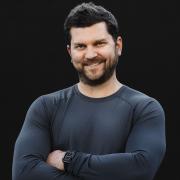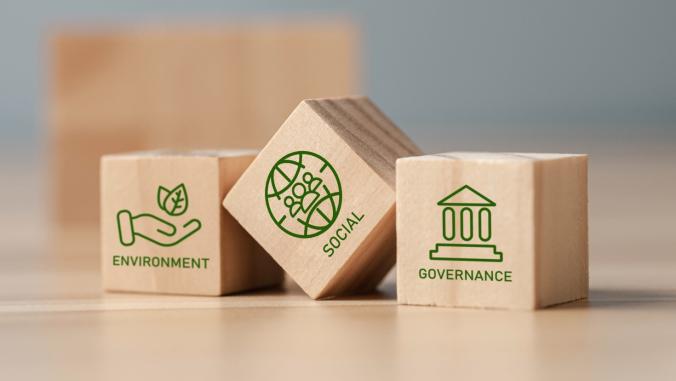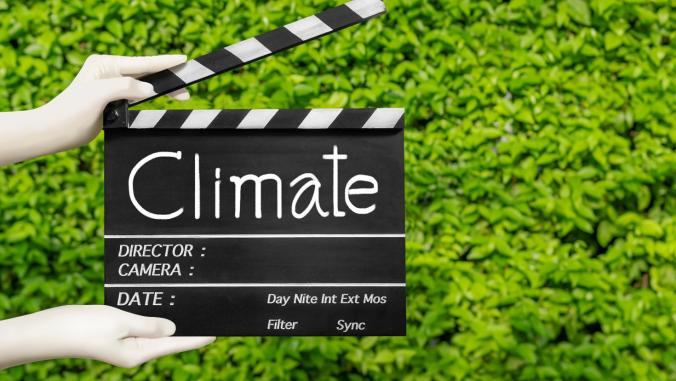How to make it in corporate sustainability
Finding a full-time job in corporate sustainability isn't easy. Here are some lessons GreenBiz Senior Writer Mike Hower has learned to help break into the business.

Making it in corporate sustainability isn’t easy. As a fledgling profession, there are few full-time roles and even fewer entry-level opportunities. While the number of companies with full-time sustainability managers has grown by 400 percent since the introduction of the term of sustainability in the late 1980s, according to CSE Research, this doesn’t help those at the beginning of their personal sustainability stories.

"There are so many other options in the field, for example consulting, nonprofit, cleantech and government that allow you to work on corporate sustainability without being in that sustainability manager role, but it can be hard to know what these opportunities are."
While some young people have managed to "make it" in the corporate sustainability space, as evidenced by the GreenBiz “30 Under 30” list, behind each of those individuals are countless more clamoring to make a career out of the triple bottom line.
As a millennial journalist who has had unusual access to some corporate sustainability big shots — chief sustainability officers, city sustainability leaders, the founder of Earth Day and even, randomly, James Cameron — my own personal sustainability story has taught me a thing or two about how to make it in this business.
It's a story that has taken me across the globe, kept me up countless nights and tested my resolve in the face of failure. Here are five key lessons I’ve learned along the way:
Lesson 1: Develop a niche but also generalize
Whether it’s in the private, public or nonprofit sectors, a career in sustainability increasingly requires the simultaneous cultivation of specialized and general knowledge. In other words: figure out what you’re good at and work to become great at it, even as you develop general sustainability knowledge. Sometimes this means taking jobs that have little or nothing to do with sustainability just so you can hone those critical skills.

Erin Cooke, sustainability director at San Francisco International Airport, told me this question of specialized versus general knowledge is nothing new.
"Initially when I joined the workforce over 15 years ago, it was about finding an entry-level role to apply these interdisciplinary skills within organizations that more often valued distinct subject-matter expertise and focused technical degrees," said Cooke. "Once I had some experience under my belt, the next challenge in my career was to decide whether to specialize or generalize. So far, I’ve gone with my gut and generalized."
To make it in corporate sustainability, find a niche and master it while striving to acquire general sustainability knowledge.
Lesson 2: Never stop learning
As an ever-evolving field, not even the most accomplished CSO knows everything about everything. That’s why corporate sustainability professionals tend to be lifelong learners who constantly devour books, newspapers, magazines and, of course, GreenBiz articles such as this one.

Is a graduate degree in sustainability worth it? I don’t know, but again it’s about cultivating a niche alongside generalized knowledge. Weigh your options, and conclude whether a graduate degree is right for you. Personally, I opted to forgo a green MBA or sustainability masters in pursuit of a graduate degree in strategic communication and public affairs — my objective always has been to work as a sustainability strategist and storyteller.
And while most white collar sustainability jobs require a college degree or higher, one of the biggest growth areas is in blue collar skilled labor — installing solar panels, upgrading buildings with more efficient fixtures — which don’t require a degree.
To make it in corporate sustainability, become a lifelong learner. And while an advanced degree can help, it doesn’t have to be in sustainability — but should master skills that will help you along your personal sustainability story.
Lesson 3: Cultivate a global perspective
Sustainability leaders often have a strong sense of global citizenship, which makes sense considering the global nature of the challenges we face. In fact, my globetrotting first ignited my interest in pursuing a career in corporate sustainability.

In 2010, I quit my first job out of college to spend a year volunteering in a poor part of Bogotá, Colombia for Harvard University’s WorldTeach program. While many told me I was crazy for leaving a good job in the wake of the Great Recession to go spend a year in a developing country with a questionable safety record, leaving that San Francisco cubicle for the great unknown was one of the best decisions I ever made — it sparked inside of me a sense of urgency to devote my life to solving the world's social and environmental challenges.
"It is a scary thing, to walk where you have never walked before — to leave the comfort of familiar shores in pursuit of something greater than yourself," I wrote in the final post of my Colombian travel blog. "I set out to change the world but ultimately found it to be the other way around."

In Bogotá, I experienced the antithesis of urban resilience, living in a sprawling city of 9 million designed for a fraction of that. I came to know on an intimate level a society rigged for iniquity — and realized the ornate link between social and environmental justice.
During a 2011 trip to the San Blas Archipelago off the Caribbean Coast of Panama, I witnessed first-hand the specter of climate change when I visited a village of the indigenous Kuna people. While the resilient Kuna survived Christopher Columbus, they won’t endure climate change — rising sea levels all but guarantee that their fragile islands soon will be swallowed by the seas.
A couple of years later, a 2014 visit to the Mathare slums in Nairobi, Kenya rewrote my understanding of social and environmental catastrophe. Overflowing with destitute refugees both from a climate change-perpetuated mega-drought and violent armed conflict, the people I met lived permanently in conditions most Americans wouldn’t endure even temporarily.

But the true value of my travels is rooted in the hope of human ingenuity. In Bogotá, I experienced the city’s valiant efforts to improve urban resilience through the creation of the TransMilenio rapid bus transit system, which has been replicated across the globe as an affordable and effective public transit solution. In Nairobi, I met with Kenyan social entrepreneurs at iHub — a kind of startup accelerator for companies in the so-called Silicon Savannah — who are designing technologies aimed at addressing Kenya’s myriad social, environmental and political problems, but which have found global applications. The Kenyan startup Ushahidi, for example, has developed open-source mapping software that has been employed everywhere from the United States to Haiti and beyond for disaster response, environmental monitoring and more. Likewise, in Guatemala I learned how labels such as the Forest Stewardship Council’s are helping local communities to tap into the growing global demand for responsibly sourced products while safeguarding the forest for future generations.
To make it in corporate sustainability, become a global citizen by making travel and learning about the world a lifelong priority. As humanity’s first truly global problem, climate change demands that we cultivate worldly perspectives.
Lesson 4: Embrace mentors and professional networks
The corporate sustainability profession may still be in its Wild West stages, but that doesn’t mean you need to be a lone rider. Throughout my nascent career, I’ve been lucky to find countless mentors who have helped me to find my way. And I’m not the only one.

"Mentors have been incredibly helpful in my career," said EDF’s Hanley. "As a young professional starting a career in an ever-changing field, mentorship is crucial in navigating new and sometimes scary challenges. Sustainability requires so much innovation, creativity and risk-taking, and having a strong support system can make that so much easier."
Budding organizations such as Net Impact, as well as the EDF Climate Corps, are great for connecting aspiring corporate sustainability professionals with mentors and peers. I myself am an alumni of the EDF Climate Corps program, which has given me access to a growing network of leaders in the field.
To make it in corporate sustainability, seek out mentors and professional networks that can help guide you along your sustainability story.
Lesson 5: Failure is the key to success
With a growing number of people competing for a limited number of full-time jobs, you are going to fail. But understanding that failure is a prerequisite to success is a lesson that not only will help you to find a sustainability job, but also kick butt in it. Many sustainability professionals operate in the state of a constant uphill battle as they try to affect organizational and industry-wide change, and failure comes with the territory.
When I graduated from my masters program in May determined to finally find a full-time role in corporate sustainability — I fell flat on my face right out the gate. After landing an interview with a major company for what seemed to be my dream job on its corporate sustainability team, I was rejected with little explanation as to why. Over the months that followed, as door after door slammed in my face, I wondered if everything that I had worked for had been in vain.

Eventually, this culminated with the arrival of nothing less than my corporate sustainability dream job when I was offered a role on Edelman’s Business + Social Purpose team in San Francisco. After years of covering purpose-driven companies from a high level, starting today I will be working with them directly on sustainability strategy and storytelling. While I’ve worked hard to make it this far, I know that the brunt of my labors lie ahead — my personal sustainability story has only just begun.
To make it in corporate sustainability, accept failure as a prerequisite to success. As we move toward a future where the only certainty is uncertainty, we need professionals who understand the enormity of the challenges we face, and are willing to devote their lives to solving them.





